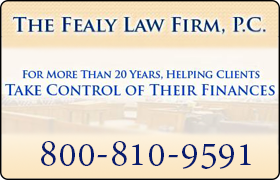Highlands Reorganization Lawyer, Texas
Sponsored Law Firm
-
 x
x

Click For More Info:
-
The Fealy Law Firm, P.C.
1235 North Loop West Suite 1005 Houston, TX 77008 » view mapBankruptcy, Judgments, & Foreclosures Houtson Bankruptcy Lawyers
Helping clients take control of their finances, for more that years. Board Certified in Consumer Bankruptcy by the Texas Board of Legal Specialization.
800-810-9591  Vicky Fealy Houston, TX
Vicky Fealy Houston, TX Attorney At Law - Texas, 1991
University of Houston Law Center, J.D.
 Frequently Asked Questions
Frequently Asked QuestionsBankruptcy Frequently Asked Questions
 Contact UsEmail or Call 24/7
Contact UsEmail or Call 24/7Timing is often critical and you really need to seek advice early.
Vicky M. Fealy
✓ VERIFIEDBankruptcy & Debt, Bankruptcy, Credit & Debt, Consumer Bankruptcy, Reorganization
Houston bankruptcy attorney Vicky Fealy, is board certified in Consumer Bankruptcy Law by the Texas Board of Legal Specialization. She has for more th... (more)
Nicholas Alexander Dupré
Corporate, Reorganization, Estate Planning, Trademark
Status: In Good Standing


 Vicky Fealy Houston, TX
Vicky Fealy Houston, TX  Frequently Asked Questions
Frequently Asked Questions Contact UsEmail or Call 24/7
Contact UsEmail or Call 24/7

